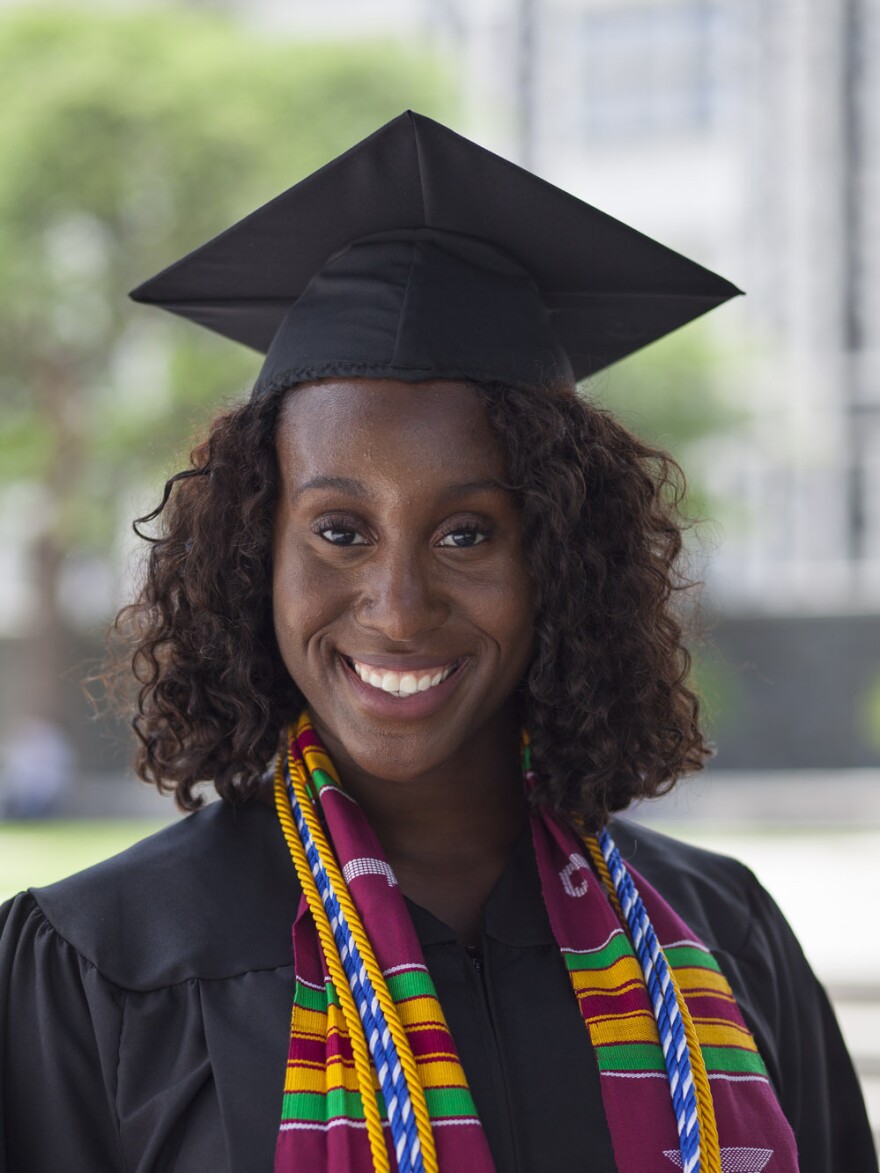It's high school graduation season, when many students are celebrating the end of their high school career. But some schools are deciding that their job doesn't end with the granting of a diploma — or even a send-off to college.
Top charter schools can often boast of sending virtually all of their graduates to college, even when the majority of their students are low-income or are the first members of their families to pursue post-high school educations.
As it turns out, many of those students don't earn a degree.
Some of the best charter school networks — places like the Knowledge Is Power Program (KIPP) or Harlem Children's Zone — are working to change that. They are not only helping their graduates get into college, but are also counseling them once they are on university campuses. The idea is to boost the number of graduates who earn bachelor's degrees.
For KIPP, the wake-up call came when the organization did an audit of graduates of two of its middle schools in 2011. They found that just one-third had completed a bachelor's degree 10 or more years after graduating.
As it turns out, KIPP's graduation rate is actually impressive, given that 90 percent of their students are low-income. The college completion rate for this socio-economic group is a mere 9 percent.
The rate for the highest income students is 75 percent. That's what KIPP wants to see for its graduates. The fact that they were falling so short of that goal was sobering, says Jane Martinez Dowling, head of KIPP NYC Through College. "We realized how hard this work is," she says.
Dowling's office is charged with raising college completion figures. Her team of counselors work with hundreds of KIPP graduates on the East Coast. They keep in regular touch with KIPPsters (as graduates are called), mentoring them on their study habits and course selection and meeting with their advisers.

CUNY is one of 59 colleges and universities that KIPP has partnered with to help usher their graduates through graduation. And Dominic Stellini, executive director of Student Engagement Initiatives at CUNY, sees the impact KIPP counseling has on its graduates.
"They learn to be assertive, without being aggressive," he says, "so they can push and get what they need, because they are doing it in the right way."
Stellini describes himself as a "pit crew" for KIPP Through College. When KIPPsters run into issues at the university, he helps troubleshoot.
At CUNY, KIPP also regularly convenes its graduates for lunches. On a Thursday afternoon just after the end of classes, 10 KIPPsters met off campus at a Mexican restaurant to celebrate.
One KIPPster in attendance, Erica Martinez-Close, had a rocky start at CUNY. She dropped out after her first year. Telling the news to her old KIPP advisors was tough.
"It was extremely awkward," she says, "because if anything, it's like a parent." In her case, that's literally true: her mother, Carol Martinez, is the assistant principal at a KIPP middle school in New York. But KIPP counseled Martinez-Close during her 18 months out of school. She's just graduated and has plans to go to law school.
Maintaining a connection with students post-graduation is becoming more common among elite charter schools. The Harlem Children's Zone, which operates two highly regarded schools in New York, recently expanded its college success office.
On an afternoon this spring, college adviser Dione Mosley spoke with Ramona Williams, a graduate of one of the Harlem Children's Zone's charter schools, about a community college class she's enrolled in.
"You told me you were struggling here," Mosley says to Williams. She asks Williams to think about strategies she could employ to successfully complete the course.
"Well, I moved to the front row," Williams responds, "so I can see the notes that [the professor] writes."
Williams spent a year at Medgar Evers College before dropping out. Part of what caused her to leave was dealing with a personal trauma. Her brother had been killed in a random shooting when Williams was a sophomore in high school.
The emotional fallout didn't really hit Williams until she was out of the nurturing environment of the Harlem Children's Zone high school. She says that made for a tough transition to the more impersonal world of college.
Harlem Children's Zone CEO, Anne Williams-Isom, worries that sometimes the school can go too far in holding students' hands.
"We were like, we were going to put a safety net around them," she says. "If you missed a test, we were like, 'OK, we're going to get you to make it up.' Some of that is good. But we've got to find safe ways to let them fail."
But Brian Gill, an education analyst at Mathematica Policy Research, says it's a balancing act. He points out students from low-income households, who are often the first members of their families to go to college, need additional supports. "It's more likely the support they get early on is preparing them to do better later," he says.
The efforts to boost college completion rates seem to be having an effect. KIPP's latest figures show that 45 percent of their middle school graduates go on to earn college degrees.
Harlem Children's Zone hasn't done the same kind of audit of its graduates. But they believe their efforts are bearing fruit. The organization hired Ramona Williams in its administrative office. As Mosley, her adviser, points out, that offers advantages.
"We can work a study schedule around your work schedule," she tells Williams, "because I know your employer."
The support is already paying off for Williams. In the fall, she plans to enroll in a four year college.
Copyright 2021 NPR. To see more, visit https://www.npr.org.



